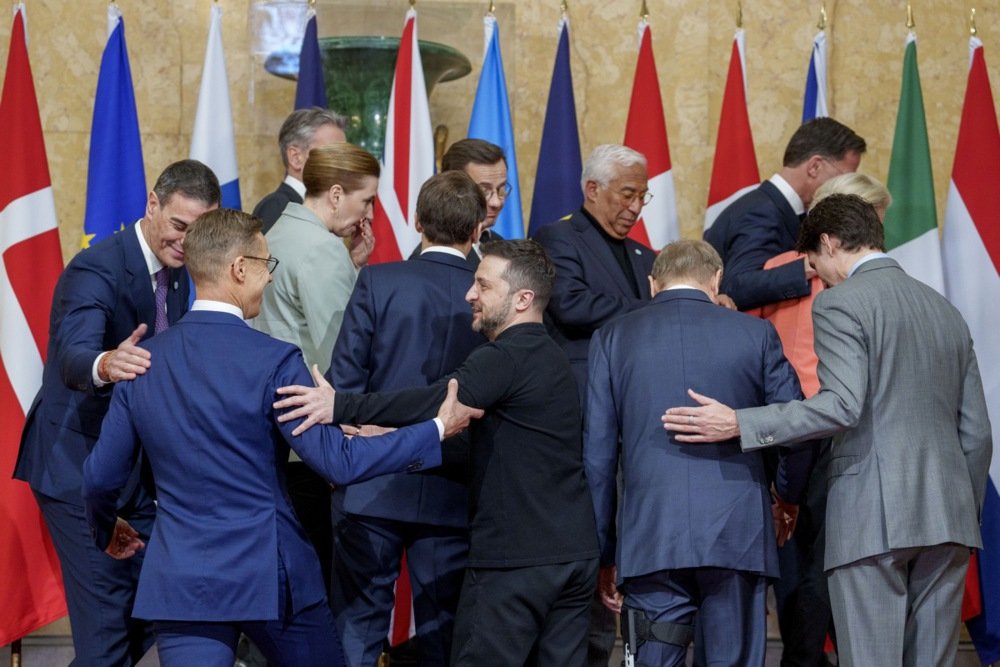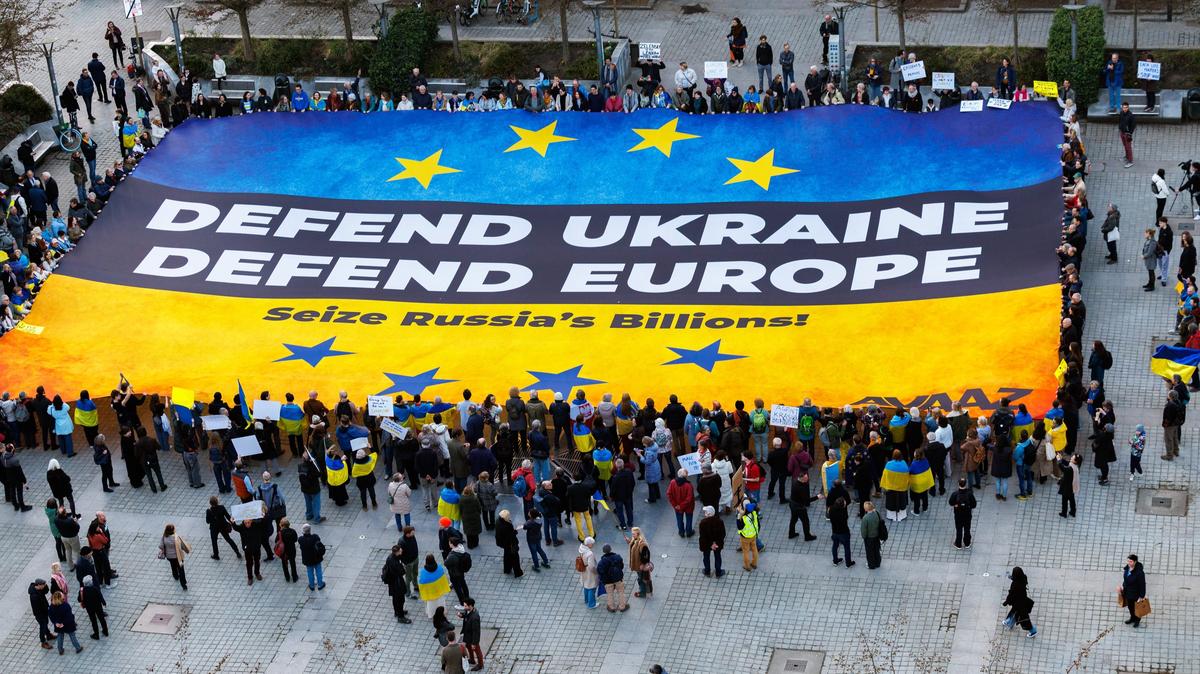It is now clear that US President Donald Trump’s administration will betray Ukraine in its fight to resist Russian aggression. Trump himself is either a victim of disinformation, or he is a willing participant in an effort to deceive Americans about the causes and consequences of the war.
Trump’s lies include claiming that Ukraine is equally to blame for the war; that Ukrainian President Volodymyr Zelensky doesn’t “have the cards” to end the conflict on favourable terms; and that Ukraine could not have defended itself without US help. Yet the whole world knows that Russia launched an unprovoked invasion, and we all remember the initial weeks, when Ukrainians valiantly defended an 2,800-kilometre front line against a supposedly superior army, long before deliveries of Western artillery, armoured vehicles, and air defence systems arrived.
The disgraceful scene in the Oval Office on 28 February highlighted Trump’s hostility toward Zelensky and fondness for Vladimir Putin. Is it just that Trump loves authoritarian figures who have fulfilled his own ambitions? Or is it that Putin has kompromat on Trump, as was widely suspected during his first term?
It is now obvious that the US will defend Europe only if doing so serves what Trump believes are his interests.
Whatever the case, Trump rejects the very idea of the rule of law, because he subordinates it to political interest: the law should be used when it serves the president’s interests, and ignored when it does not. Agreements between countries (even those he signed) can be broken at will. The United States, together with the United Kingdom and Russia, promised to defend Ukraine’s territorial integrity 30 years ago, under the Budapest Memorandum, signed in December 1994. In exchange, Ukraine agreed to give up the world’s third-largest nuclear arsenal, inherited from the Soviet Union. Russia violated the agreement when it invaded and illegally annexed Crimea in 2014, and now Ukraine has been betrayed by two of the agreement’s parties.
Trump’s refusal to honour America’s word is disgraceful. The Ukrainians upheld their end of the bargain, and they expected the US to do the same. These betrayals have deadly implications, and not only for Ukraine. For decades, Europe’s own security has relied on Article 5 of the NATO treaty, according to which an attack on one member is an attack on all. Yet it is now obvious that the US will defend Europe only if doing so serves what Trump believes are his interests. International law and treaty obligations mean nothing to him, just as they mean nothing to Putin.

World leaders attend a summit on Ukraine at Lancaster House in London, 2 March 2025. Photo: EPA-EFE/JAVAD PARSA
Europeans are coming to terms with these harsh realities. The most immediate tasks are to create a self-sufficient defence force and to decide what to do with some €210 billion in Russian central bank assets currently held in European jurisdictions, out of the total of around €260 billion immobilised by Europe and other non-EU countries in 2022.
In June 2024, the G7 agreed to use the €45 billion in interest that has accrued from these assets to provide financial aid to Ukraine, and the European Commission made the first disbursement of €3 billion in January. But with the US likely to end its own financial assistance, this half-measure is no longer sufficient. Europe must go further by seizing all the Russian assets under its control.
Russia should not be allowed to claim that the assets are legally protected at a time when it is shredding the rule of law and freely confiscating Western assets within its own jurisdiction.
We previously argued that these assets should be used to fund Ukraine’s reconstruction, since the damage caused by Russian aggression far exceeds €210 billion. But the money is needed even more urgently now. One cannot rebuild a country that is still under attack and partial occupation. Justice and common sense dictate that these resources go to fund Ukraine’s defence. Europe can use whatever legal manoeuvres it needs; what matters is that Ukraine receives the money immediately, so that it can purchase military equipment and repair the infrastructure that Russia is continually destroying.
As French President Emmanuel Macron recently put it, “Europe should rediscover the taste of risk, of ambition, and of power.”
There can be no question of liability. Russia should not be allowed to claim that the assets are legally protected at a time when it is shredding the rule of law and freely confiscating Western assets within its own jurisdiction. Moreover, making the funds immediately available to Ukraine would be in Europe’s own interest. Whatever Ukraine spends on its defence industry will ultimately strengthen Europe’s own defence capacity and stimulate its faltering economy.
There is no time to waste. Using the funds as collateral for a future International Claims Commission, as has been proposed, would cause unacceptable delays. The tide of authoritarianism is rising, and Europe has become the world’s bulwark against it. European values — and the defence of civil liberties, democracy, and human rights globally — are on the line.
As French President Emmanuel Macron recently put it, “Europe should rediscover the taste of risk, of ambition, and of power.” If he and other European leaders want to follow through on their rhetorical support of Ukraine following the Oval Office debacle, they must seize the moment, which means seizing Russia’s assets. Ukraine is defending all of Europe. Europe must not hide behind legalistic excuses.
This article was first published by Project Syndicate. Views expressed in opinion pieces do not necessarily reflect the position of Novaya Gazeta Europe.
Делайте «Новую» вместе с нами!
В России введена военная цензура. Независимая журналистика под запретом. В этих условиях делать расследования из России и о России становится не просто сложнее, но и опаснее. Но мы продолжаем работу, потому что знаем, что наши читатели остаются свободными людьми. «Новая газета Европа» отчитывается только перед вами и зависит только от вас. Помогите нам оставаться антидотом от диктатуры — поддержите нас деньгами.
By clicking the Support button, you agree to the processing of your personal data.
To cancel a regular donation, please write to [email protected]

